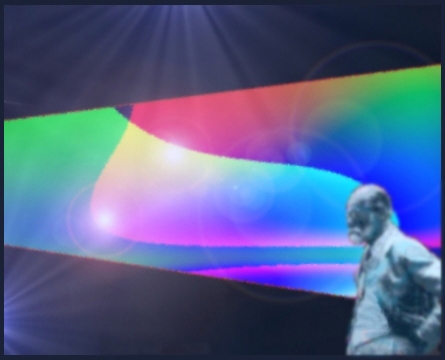| Main Menu |
|
PortuguÍs |
Hypnosis
| As Franz Anton Mesmer (1734-1815), an Austrian physician, believed that an occult force flowed through the hypnotist into the subject, he treated neurotic patients using iron magnets and hypnosis, which he originated and later became an accepted psychotherapeutic technique. | ||
|
||
|
Hypnosis may be self-induced by trained relaxation or by a variety of practices found in many mystical, philosophical and religious systems. Induction of hypnosis is generally preceded by the establishment of suitable rapport between hypnotist and subject who must be willing, cooperative and trust the hypnotist. Usually the hypnotist engages the subject's attention while uttering monotonous, repetitive verbal commands. A phenomenon of degrees, ranging from light to profound trance states, and characterized by a high degree of suggestibility, hypnosis is an altered state of consciousness, wholly dissimilar to either wakefulness or sleep, during which attention is withdrawn from the outside world and is concentrated on mental, sensory and physiological experiences. The hypnotized individual seems to follow instructions in an uncritical, automatic fashion. During hypnosis his perception of the real world is defined by the hypnotist's suggestions, which are literally followed, even though they may be in direct contradiction to the stimuli that impinge upon him. In this sense the phenomenon has been described as a "dream-like state", suggesting a regressive mental functioning of the hypnotized subject. Posthypnotic amnesia can either result spontaneously from deep hypnosis or it can result from suggestion by the hypnotist during the trance state. Conversely, it may be successfully removed by appropriate hypnotic suggestions. If amnesia is induced during the trance state, the individual will not be aware of the source of his impulse to perform the instructed act in his subsequent waking activity. On the other hand, hypermnesia, a memory capacity that transcends the everyday ability, is another aspect of hypnotic behaviour - the subject can remember deeply repressed experiences and still have no recollection of them at the ordinary level of consciousness. The revival of early, forgotten memories may be fused with fantasies though. Hypnosis has been officially endorsed as a therapeutic method by medical, psychiatric, dental, and psychological associations throughout the world. |
| Psychoanalysis/ Index | Definition | History | Hysteria | Theory |

